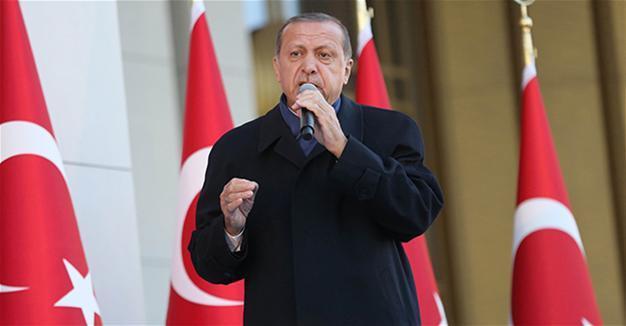Ankara slams international election observers’ criticism of referendum result
ANKARA

AFP photo
International election observers’ criticism that the April 16 referendum on shifting Turkey to an executive presidential system fell below international standards has drawn an angry reaction from Ankara, which has slammed “biased and prejudiced approaches” to the results.
A mission of observers from the 47-member Council of Europe, the Organization for Security and Co-operation in Europe’s (OSCE), the Office for Democratic Institutions and Human Rights (ODIHR) and the Parliamentary Assembly of the Council of Europe (PACE) said the referendum, which saw a 51 percent approval for the changes, was an uneven contest that took place in unfair conditions. They particularly noted the Supreme Election Board’s (YSK) controversial 11th hour decision to allow as valid ballots that did not bear official stamps, saying the decision undermined important safeguards against fraud.
“In general, the referendum did not live up to Council of Europe standards. The legal framework was inadequate for the holding of a genuinely democratic process,” said Cezar Florin Preda, the head of the PACE delegation, on April 17.
President Recep Tayyip Erdoğan immediately denounced the criticism, urging the OSCE to “know its place” and saying Turkey would disregard their “political” reports.
“There is an organization called the OSCE in Europe. Now they are preparing a report in their own way regarding elections in Turkey. You should know your place first. We will neither see, nor hear, nor know about your political reports. We will continue on our path. Talk to the hand,” Erdoğan told a crowd outside the Presidential Palace in Ankara on April 17.
The president claimed that the country had conducted the most democratic vote in its history.
The Turkish Foreign Ministry had earlier denounced the observers’ criticism, saying their remarks lacked “objectivity and impartiality.”
“The assessment that suggests that the referendum process fell short of international standards is unacceptable. In fact, the political statements made by the Director of the OSCE Office for Democratic Institutions and Human Rights regarding the referendum process shortly before holding the referendum show that the mission has arrived in Turkey with prejudices and has disregarded the principles of objectivity and impartiality. The Preliminary Findings and Conclusions Report of the Observation Mission is a reflection of this biased and prejudiced approach,” the ministry said in a statement.
Separately, Erdoğan also signaled another possible referendum on whether to continue negotiations in Turkey’s EU accession process.
“First and foremost, this is not a decision that they can make. But it is also not very important for us either. The European Union should make its decision and convey it to us. Now a rapporteur prepares a report, but I denounce those who house such rapporteurs. They have made us wait at the gates of the EU for 54 years. So we will sit and talk and hold a referendum on that too,” he said.
Regarding the hotly-debated issue of reinstating capital punishment, Erdoğan once again reiterated that he would approve such move after parliament’s approval and suggested that another referendum might also be held on the issue.
“What does [Nationalist Movement Party leader] Mr. [Devlet] Bahçeli say? ‘I will say yes to the death penalty.’ I believe that [Prime Minister] Binali Yıldırım also says so. [Republican People’s Party leader] Mr. Kemal Kılıçdaroğlu also says yes. If the parliament approves and it comes to me, I will approve it. Otherwise, we will hold another referendum for that too,” he said.
Brussels has stated that reinstating capital punishment would put an end to Turkey’s bid to join the EU, but Erdoğan vowed to “disregard what others say on the issue.”
